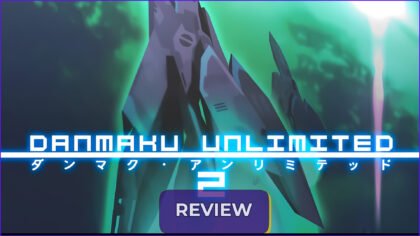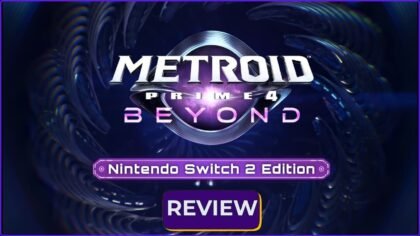| Title | RAIDOU Remastered: The Mystery of the Soulless Army |
| Released | June 19, 2025 |
| Developer | ATLUS |
| Publisher | SEGA |
| Platform | |
| Genre | Action RPG |
| Rating | M |
| Pricing | $49.99 |
| Proton | 9.0-4, -dx11 launch option |
Completed on the Switch 2 in Docked Mode, on Private Eye (Normal)
HowLongToBeat: 27 Hours (Main + Sides) | My Clear Time: 18 Hours 7mins
RAIDOU Remastered Background
Raidou Kuzunoha vs. The Soulless Army is one of the more niche entries in the broader Megami Tensei (MegaTen) universe, falling under the Devil Summoner subseries.
The line began as a spin-off of Shin Megami Tensei: If…, with the original Devil Summoner debuting on the Sega Saturn in the mid-1990s. Raidou Kuzunoha marked a turning point for the subseries, becoming the first Devil Summoner title officially released outside Japan with its 2006 launch on PlayStation 2.
After years of obscurity, Raidou Remastered: The Mystery of the Soulless Army first appeared via a backend SteamDB leak in September 2024, when its achievement list was discovered, hinting at a revival. Atlus formally announced the remaster during a Nintendo Direct in May 2025.
The remaster leans more toward an enhanced re-release than a barebones port, with numerous gameplay changes and a surprising number of quality-of-life improvements that modernize the experience though not without some controversial alterations to its tone and presentation.
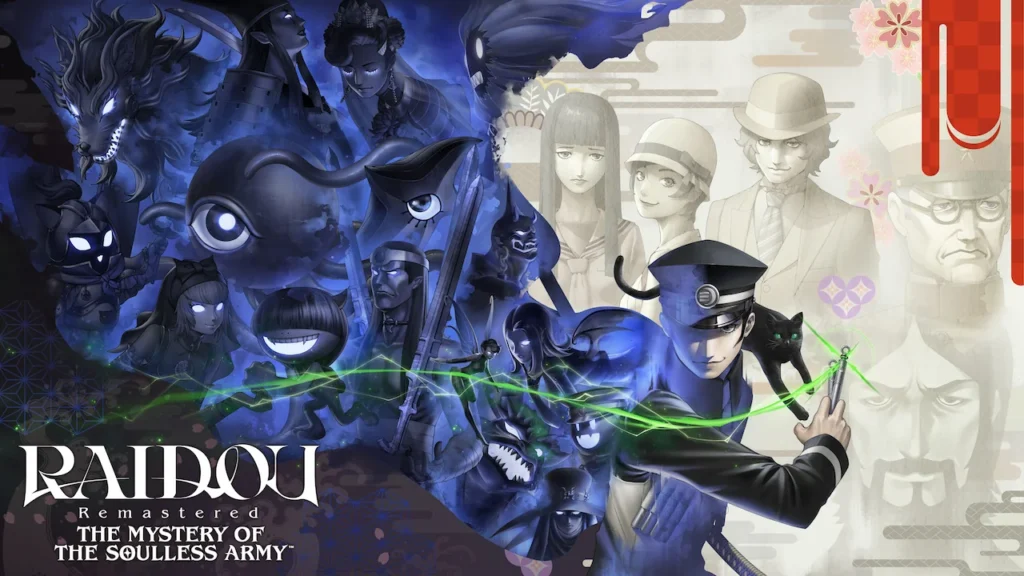
Stylized demons and ink-stained elegance set the tone.
The development team for RAIDOU Remastered: The Mystery of the Soulless Army includes:
- Kazuyuki Yamai (Director, Producer, Scenario Planning & Rewrite): Shin Megami Tensei: Nocturne, Shin Megami Tensei IV, Devil Summoner 2 – Raidou Kuzunoha vs. King Abaddon
- Hiroshi Sasazu, Chen Yifan (Key Art Designer, UI Designer):
Etrian Odyssey Untold: The Millennium Girl, Tokyo Mirage Sessions #FE: Encore, Shin Megami Tensei V: Vengeance. - Shoji Meguro (Original Composer): Trauma Center: Under The Knife, Devil Summoner: Soul Hackers, Maken X
- Kazuma Kaneko, Masayuki Doi (Series Devil Design, Devil Design): Shin Megami Tensei, Devil Summoner: Soul Hackers, Zone of the Enders: The 2nd Runner, Strange Journey, SMT IV
RAIDOU Remastered Experience
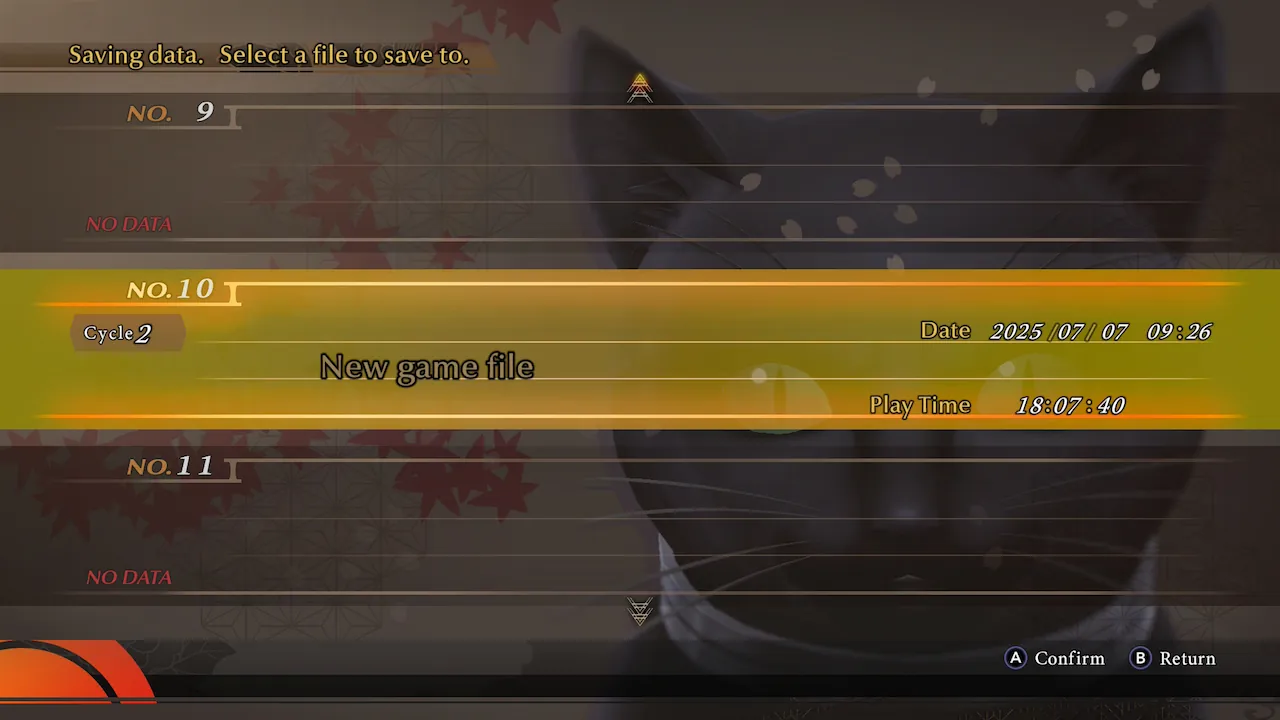
Raidou’s journey wraps with time to spare.
I completed the original PS2 version on June 7, 2021, and have played extensively across the MegaTen franchise, including Shin Megami Tensei IV, Strange Journey Redux, Soul Hackers, Soul Hackers 2, Nocturne, Devil Survivor, SMT V, SMT V: Vengeance, Digital Devil Saga, and most Persona titles.
As a fan of action RPGs and Atlus’ distinct style, I was eager to see how the remaster’s quality-of-life changes would elevate Raidou Kuzunoha.
RAIDOU Remastered Impressions
Introduction
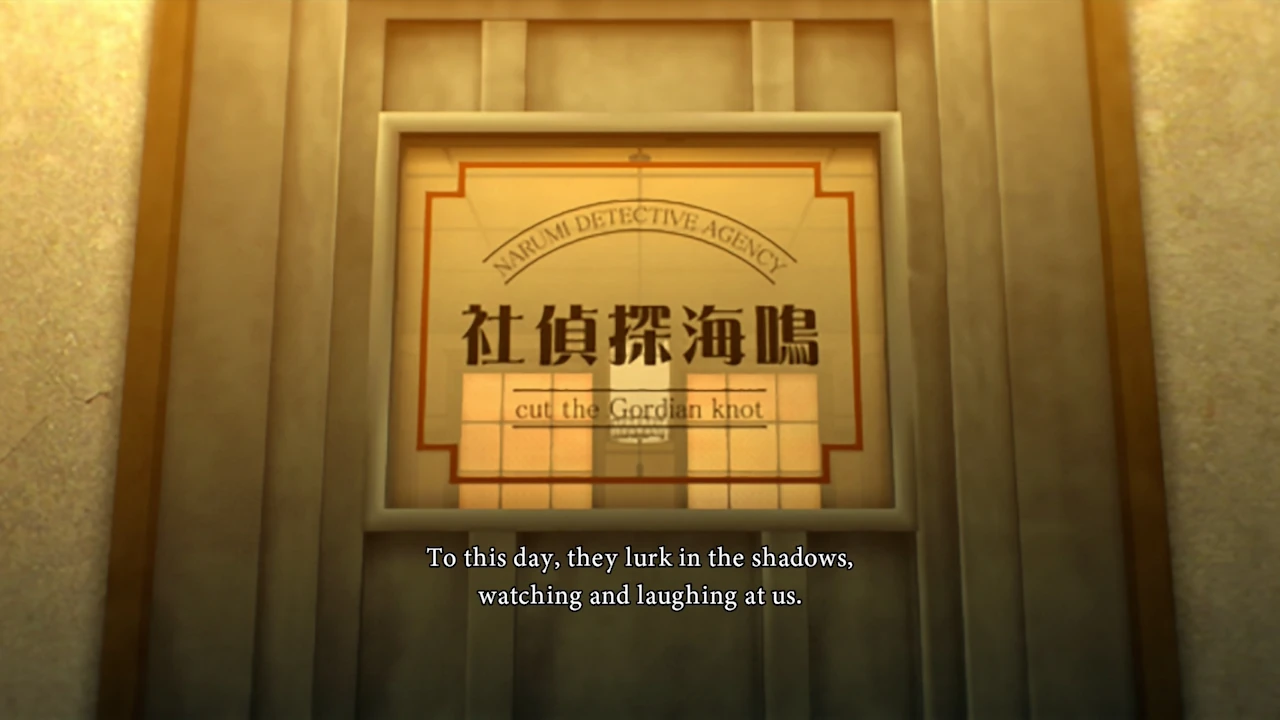
Narumi’s humble office hides a world on the brink.
Raidou Kuzunoha vs. The Soulless Army, a standout in the Shin Megami Tensei spinoff Devil Summoner, trades turn-based battles for real-time combat and a detective-noir tale set in a supernatural 1930s Tokyo. As Raidou, the 14th heir to a demon-summoning legacy, you protect the Capital while investigating a mysterious girl hunted by the military. A routine case spirals into a web of forbidden science and time-bending threats.
Raidou Remastered revitalizes this cult classic with smoother controls, sharper visuals, and smart quality-of-life upgrades, preserving its bold, niche charm while making it more accessible for newcomers and engaging for MegaTen fans.
Gameplay & Mechanics
The original combat was ambitious but often stiff and clunky. Raidou Remastered improves responsiveness, pacing, and tactical depth, making battles smoother and more engaging.
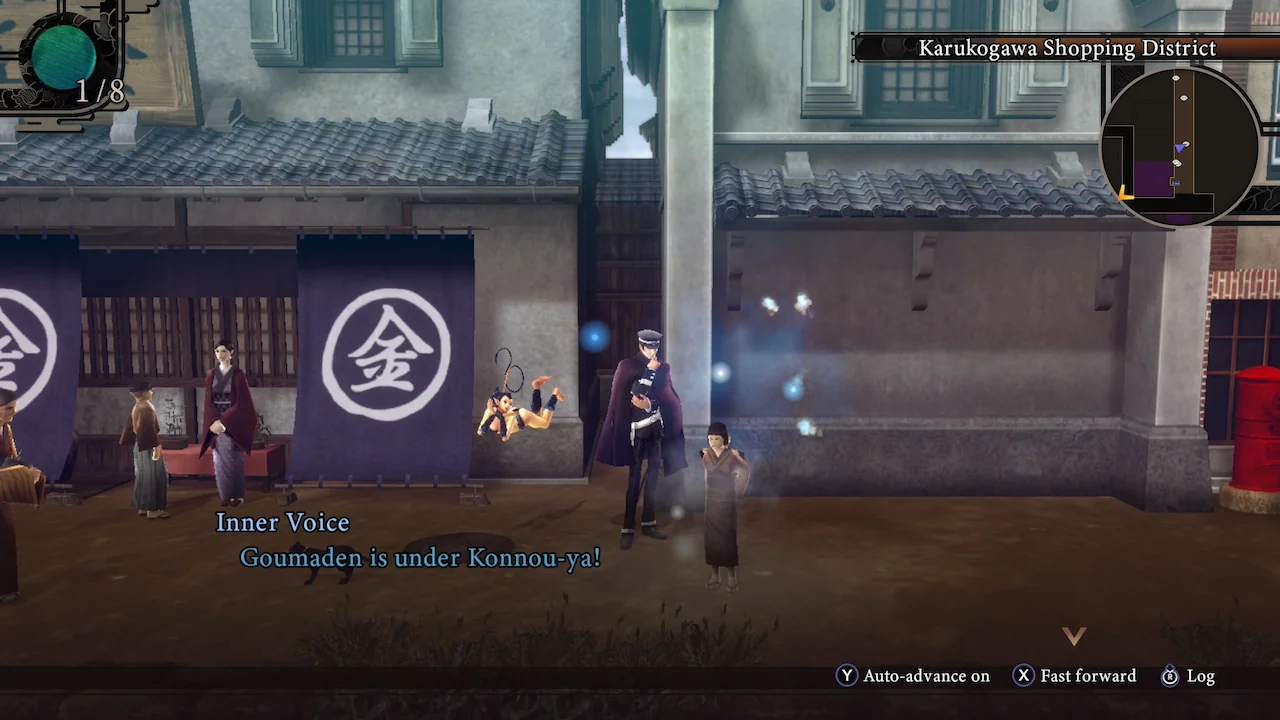
Alp’s Read Mind cracks open the city’s secrets.
Solo Investigation
Demons can explore environments independently, bypassing barriers or using skills like Volt demons’ scanning to reveal hidden items. For example, using an Alp to read minds for clarity adds a satisfying puzzle element to exploration.
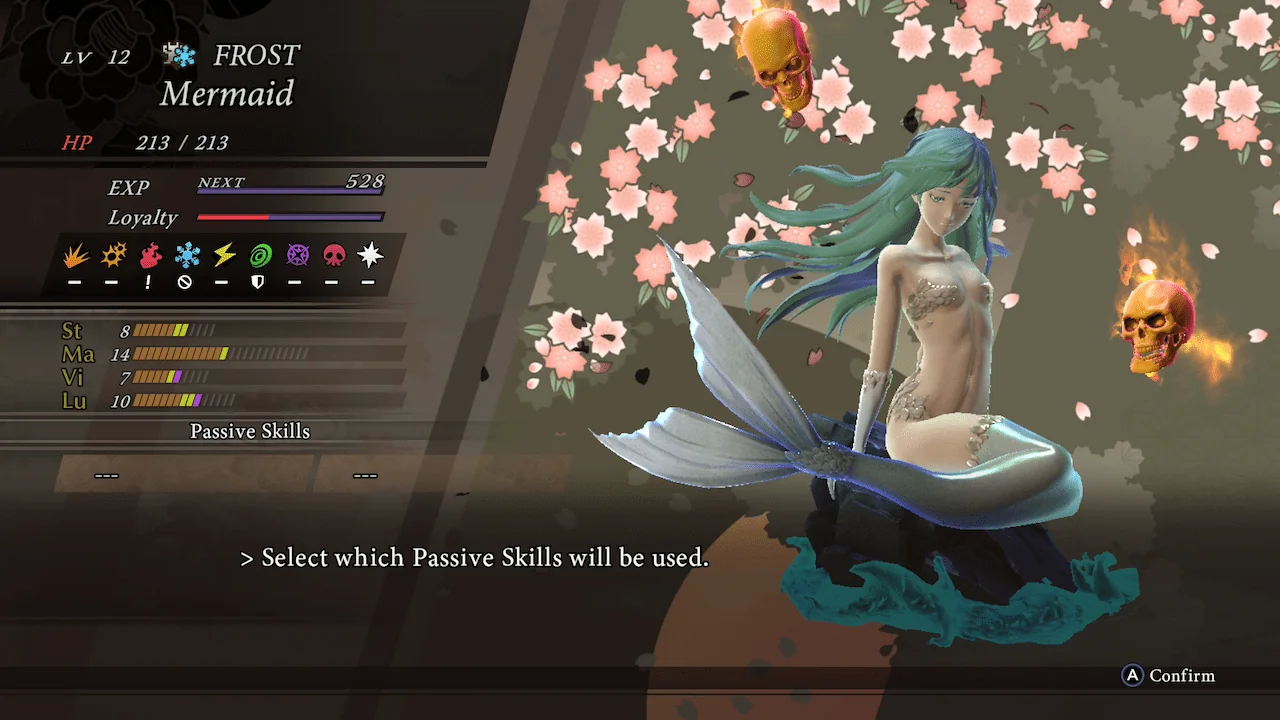
Mermaid’s fusion highlights the depth of demon building.
Demon Fusion
Fuse two demons to create a stronger one with inherited skills, a MegaTen hallmark combining strategy and creativity. My Oberon fused into a Thor with Zio and Tarukaja skills for devastating electric combos, rewarding experimentation.
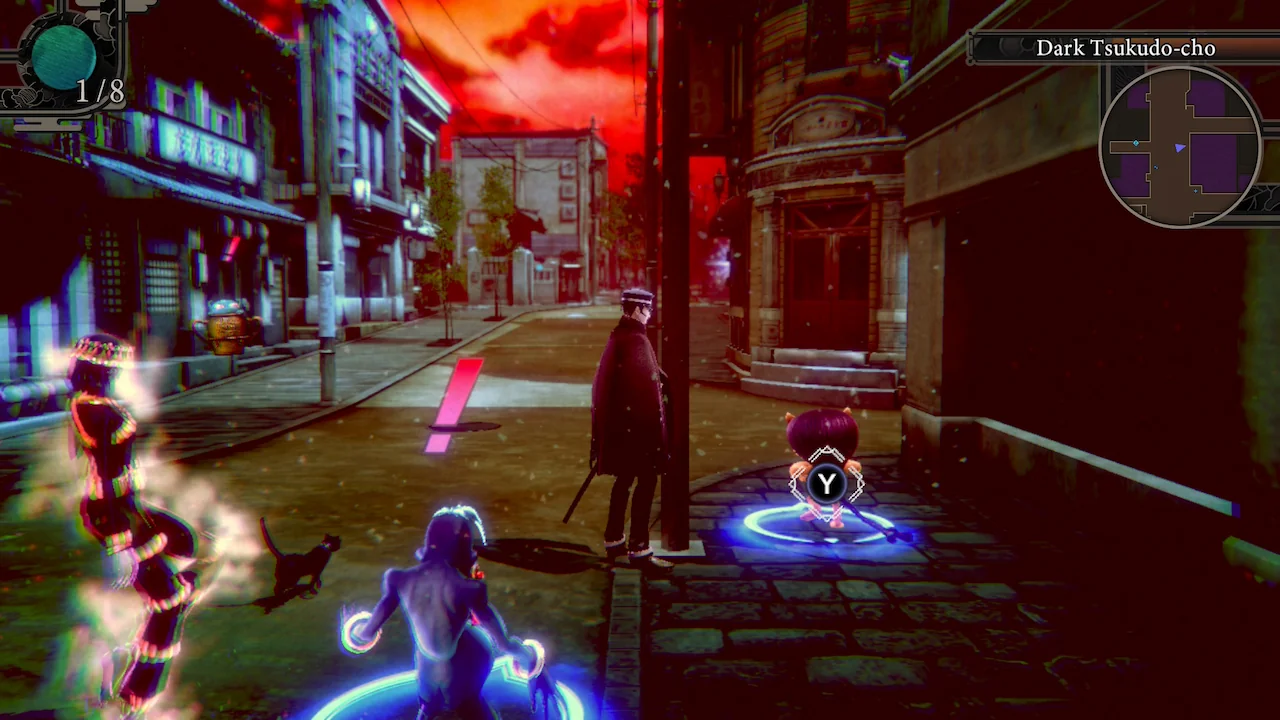
Visible foes replace random encounters for smoother gameplay.
Enemy Encounters
Random battles are replaced with visible enemies in the Dark Realm, similar to Shin Megami Tensei V. This streamlines pacing and allows strategic planning. My 18-hour clear was faster than HowLongToBeat’s average 27 hours, thanks to familiarity, though the Case Files side quests extend playtime for completionists.
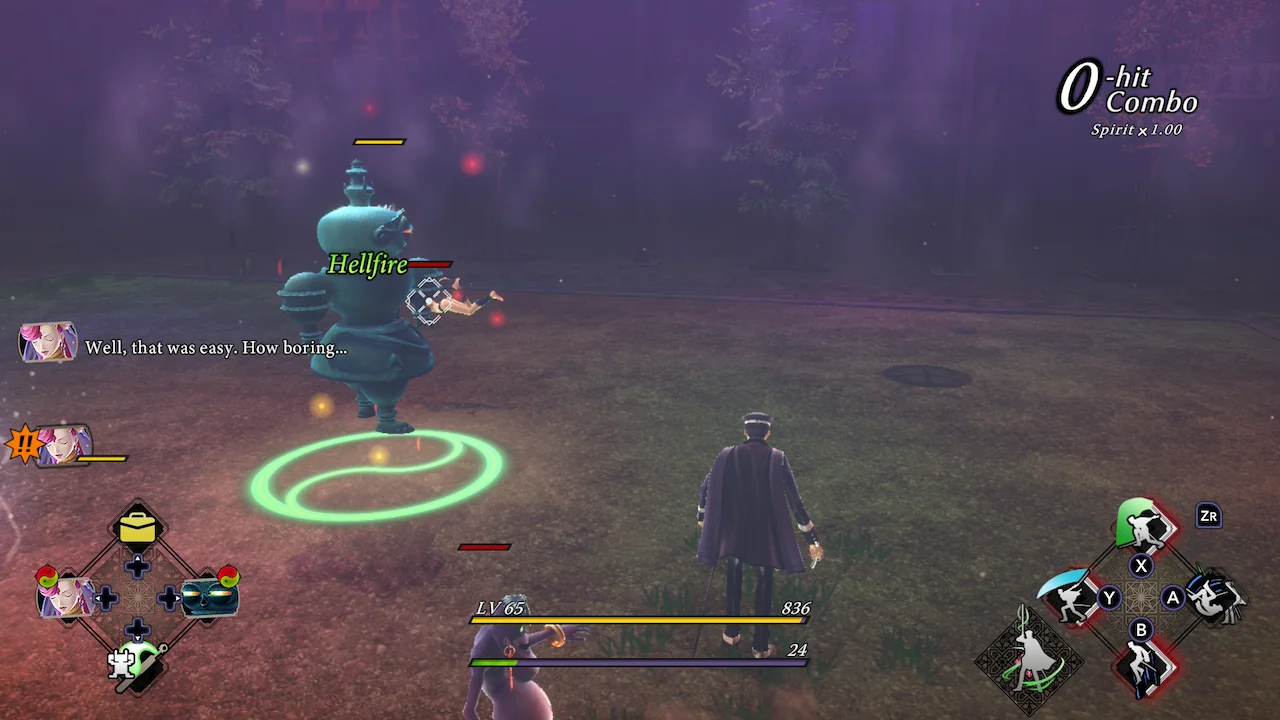
Parvati’s words sting almost as much as her magic.
Two Demons
Borrowing from Raidou 2, you can summon two demons simultaneously, combos like Parvati (healer) and Arahabaki (tank) add meaningful tactical flexibility.
Reworked Combat
Evasive rolls and bullet-hell-style boss fights inject dynamism. Bosses now use ground-targeted attacks that require careful timing and spatial awareness.
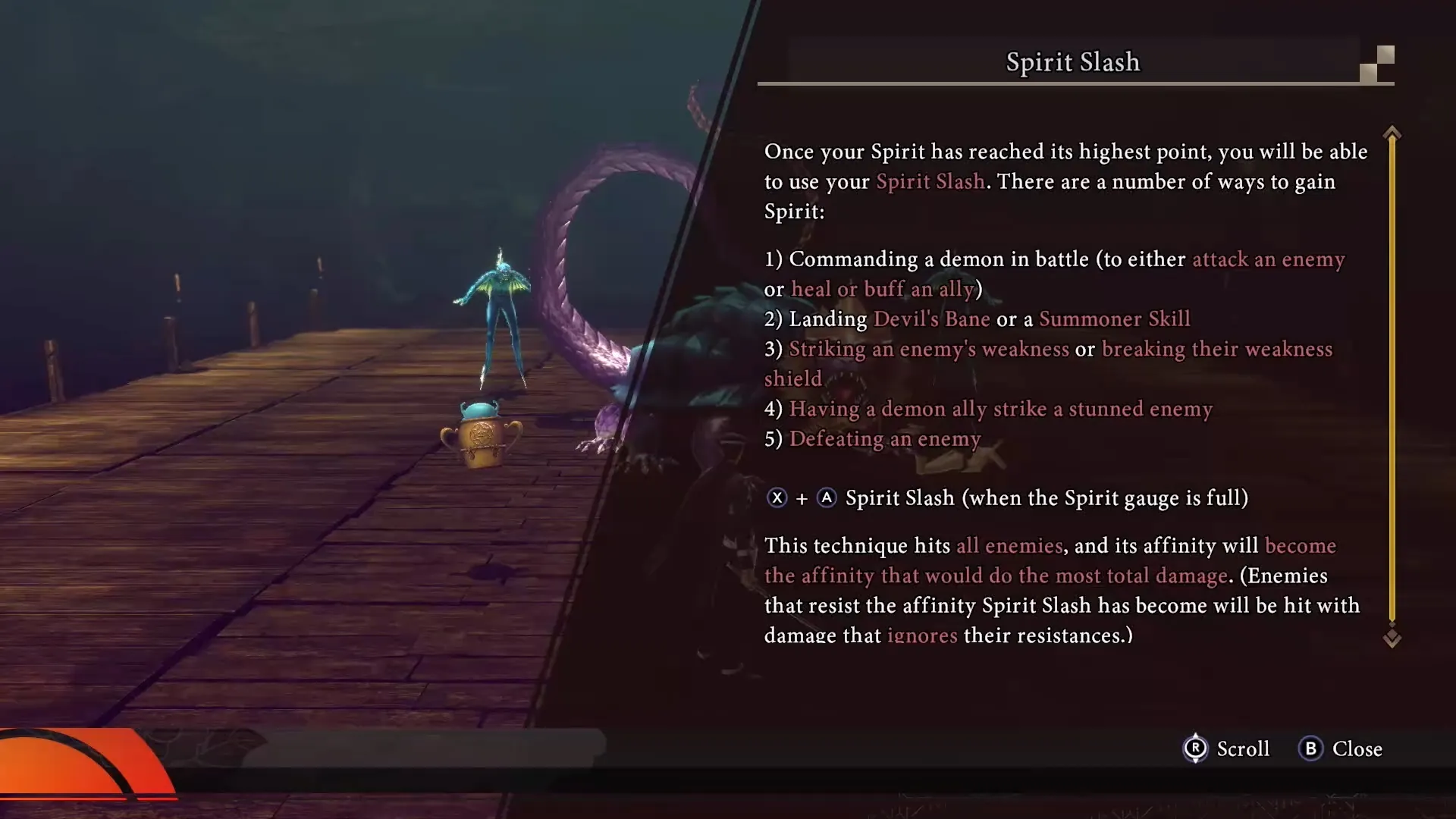
Spirit Slash turns the tide with devastating impact.
Spirit Slash
A new mechanic allowing you to expend your full spirit gauge to unleash a powerful area attack, perfect for tough encounters.
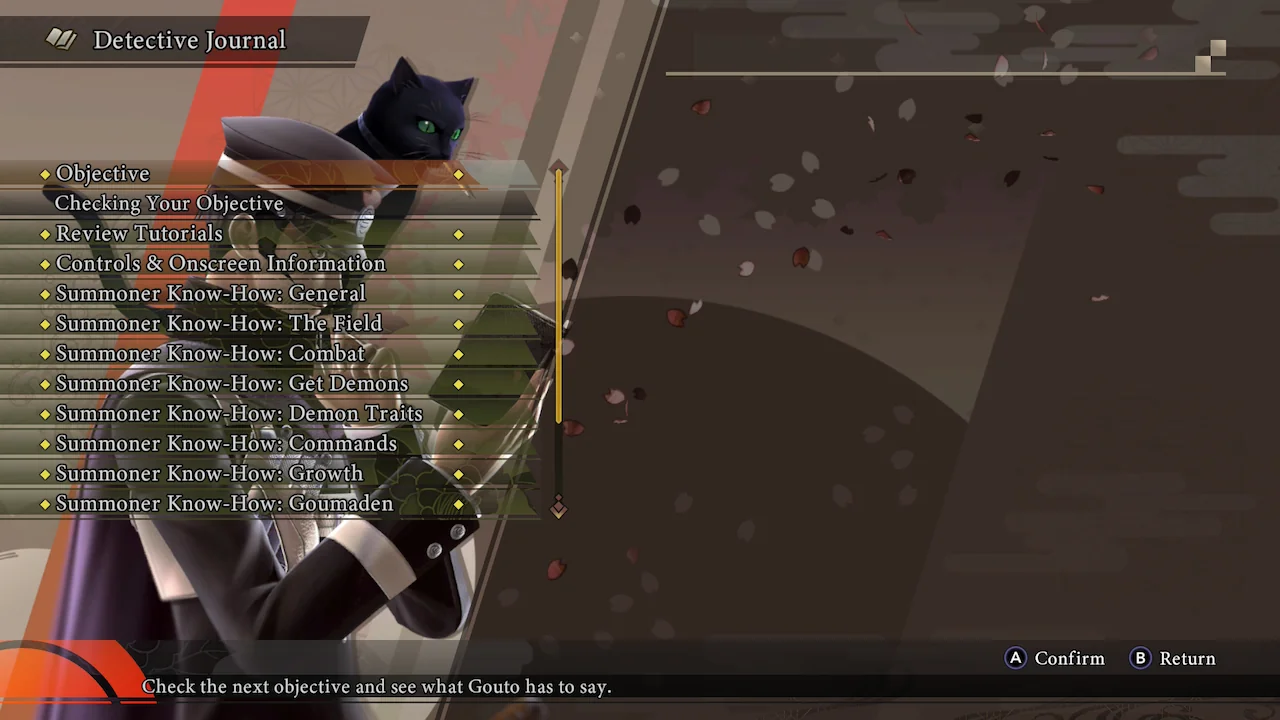
Raidou’s journal keeps your mission front and center.
Journal
Objectives are now accessible via the menu, cutting down on backtracking to the detective agency.
This refined gameplay, blending tactical depth with fluid action, is elevated further by the remaster’s striking presentation.
Art & Audio
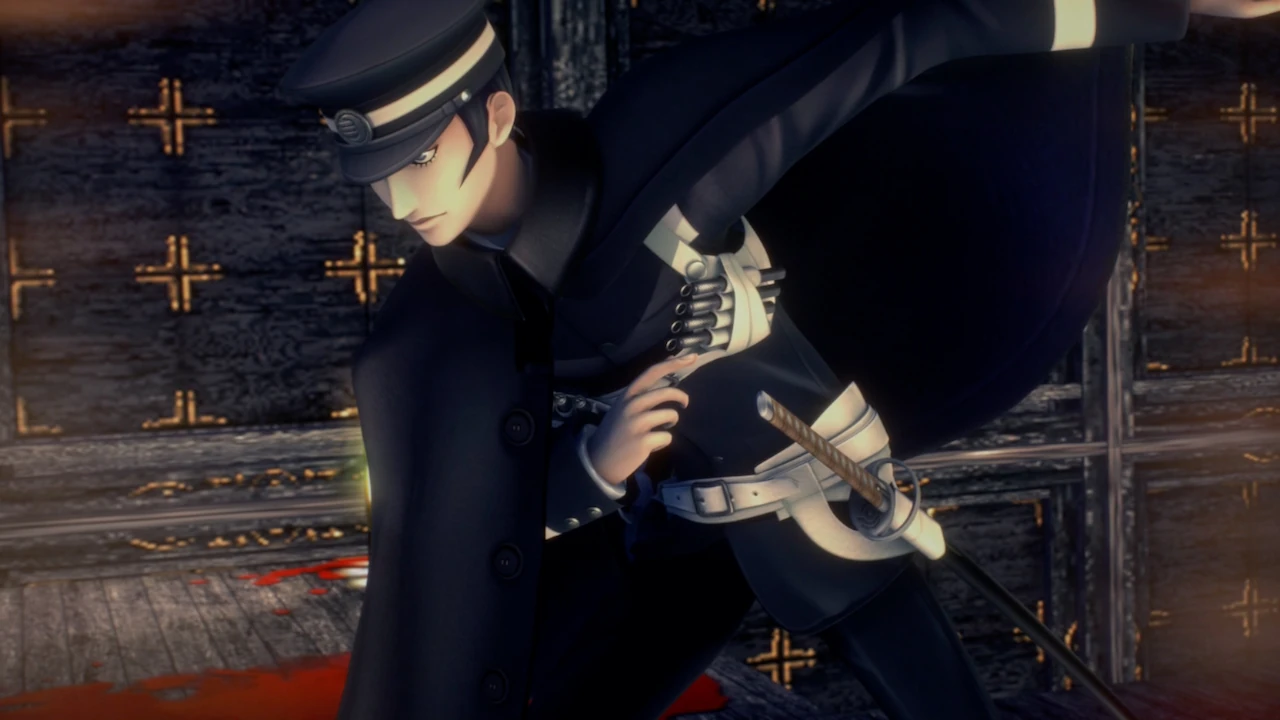
Raidou channels Kaneko’s iconic design with crisp visuals.
Kazuma Kaneko’s signature art style shines through improved anti-aliasing and anisotropic filtering, giving models a sharper, more modern look. The color palette is more vibrant, softening the original’s bleak noir tone slightly, though locations like the sub base and manor retain their oppressive atmosphere. Cutscenes are impressively upscaled on the Switch 2 in docked mode, with only rare micro-stuttering over my 18-hour playthrough.
Altered demon designs, including changes to Lamia, Preta, and Belphegor, reflect a broader shift in presentation rather than a purely technical upgrade. These revisions soften some of the original’s more provocative or grotesque elements, subtly changing the visual tone that defined the 2006 release.
In addition, several historical references tied to the game’s 1930s setting have been removed or recontextualized. While these adjustments may make the remaster more accessible to a global audience, they also distance the experience from the specific cultural and historical texture that gave the original its distinct identity.
These changes suggest a careful effort to standardize the game’s presentation across modern platforms and regions. While this approach aligns with contemporary localization practices, it also highlights the tension between modernization and preservation. Elements that once grounded Raidou in a specific historical and thematic context are now presented more abstractly, reducing some of the narrative sharpness that longtime fans associate with the Devil Summoner subseries.
Standout Tracks
Shoji Meguro delivers some of his most memorable work here. The soundtrack blends jazz, tribal rhythms, and ambient tones to craft a soundscape perfectly suited to the game’s fusion of detective noir and supernatural themes. New arrangements like the Devil Summoner Battle Theme and NAOMI’s Theme from Soul Hackers add nostalgic depth for longtime fans.
Konnou-Ya – A breezy, jazz-tinged shop theme with whimsical warmth.
The Soulless Army – Percussion-heavy with mechanical and didgeridoo accents, perfect for intense battles.
Hyperspace – A synth-driven, contemplative track for a late-game area, evoking mystery.
This evocative art and audio lay a strong foundation, complemented by additional gameplay systems that enhance the remaster’s polish.
Unique Features & Mechanics
Raidou Remastered introduces several new systems to streamline and modernize the experience:
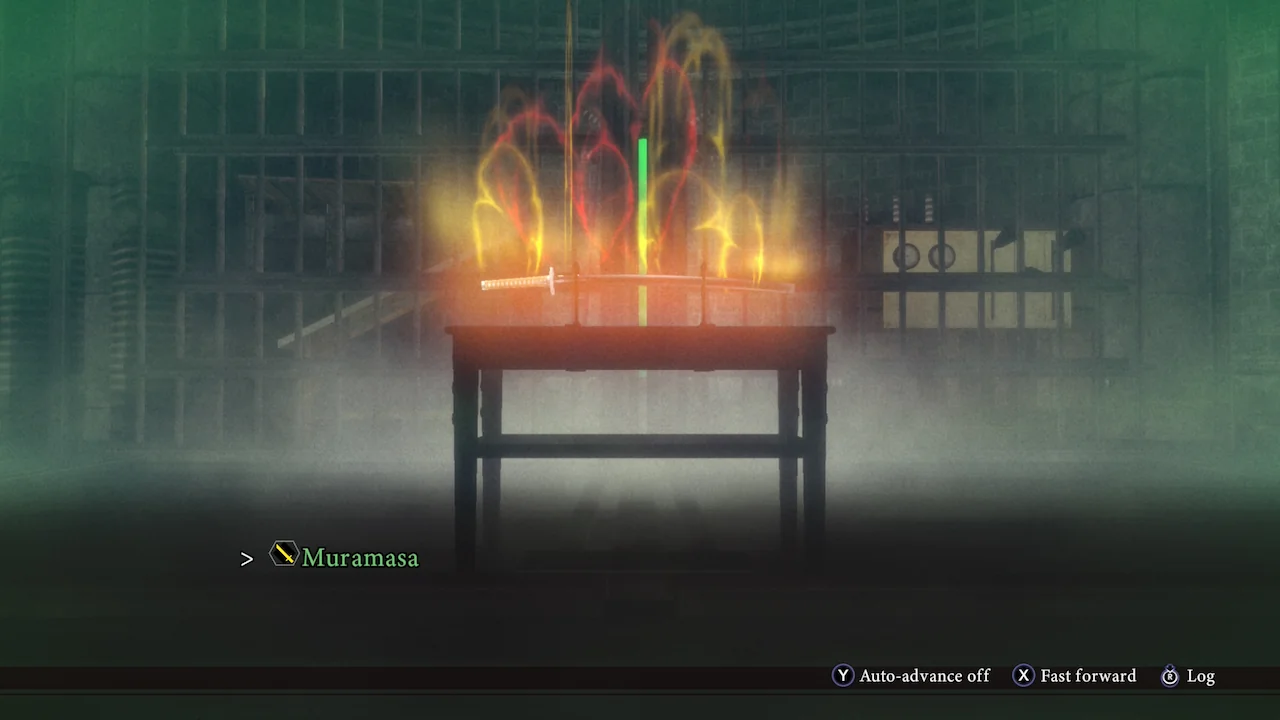
The Muramasa’s potential unlocked through Sword Alchemy.
Sword Alchemy
Fuse weapons like swords, axes, and spears in the Goumaden, combining unique stats and skills reusable in future crafting. Unlocks after Chapter 2, offering deep customization without complexity.
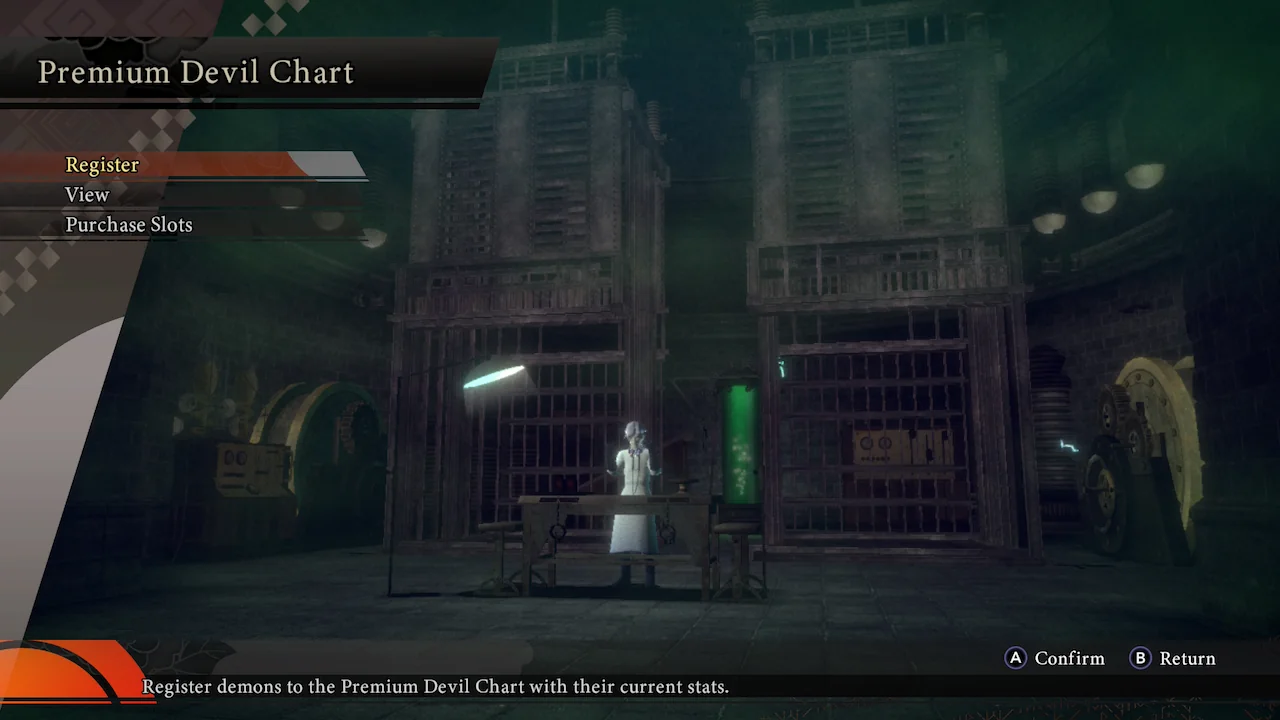
Save multiple builds to fit your style.
Premium Devil Chart
Register multiple versions of the same demon (e.g., healer vs. magic-damage Pixie) with additional purchasable slots.
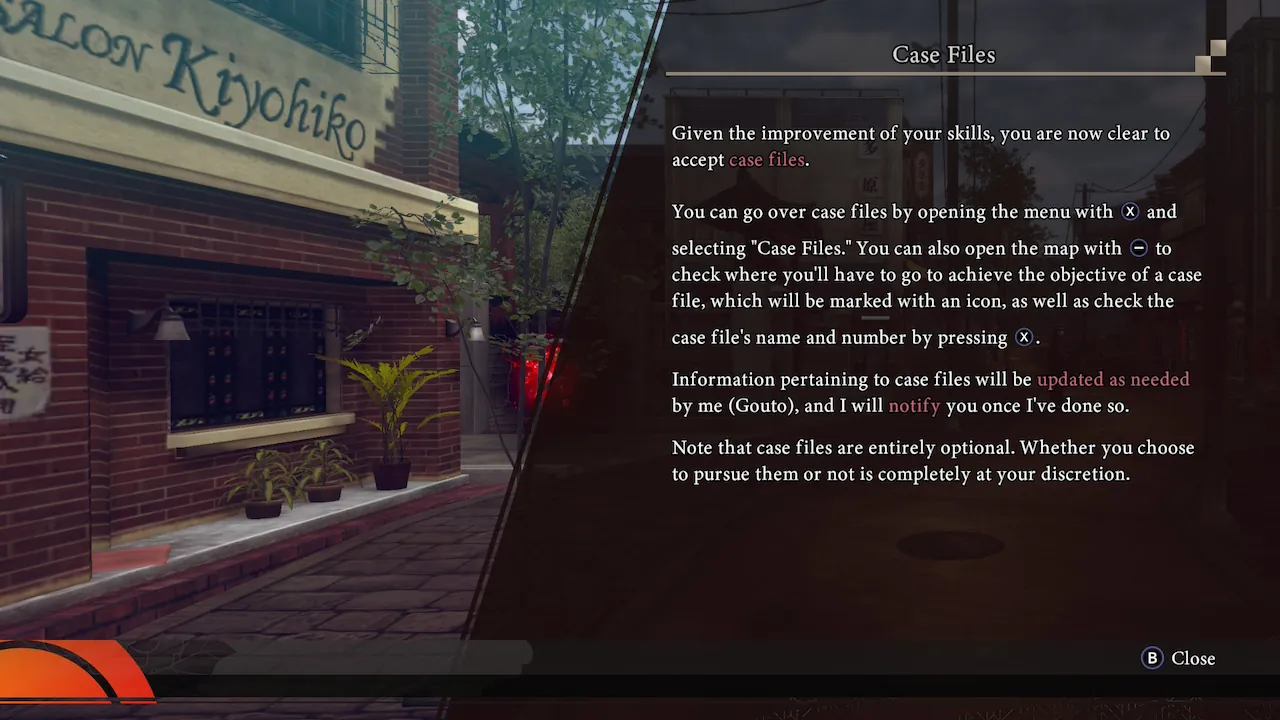
Case Files keep your investigations organized.
Case Files
Organized side quests help ensure you don’t miss unique demons or rewards.
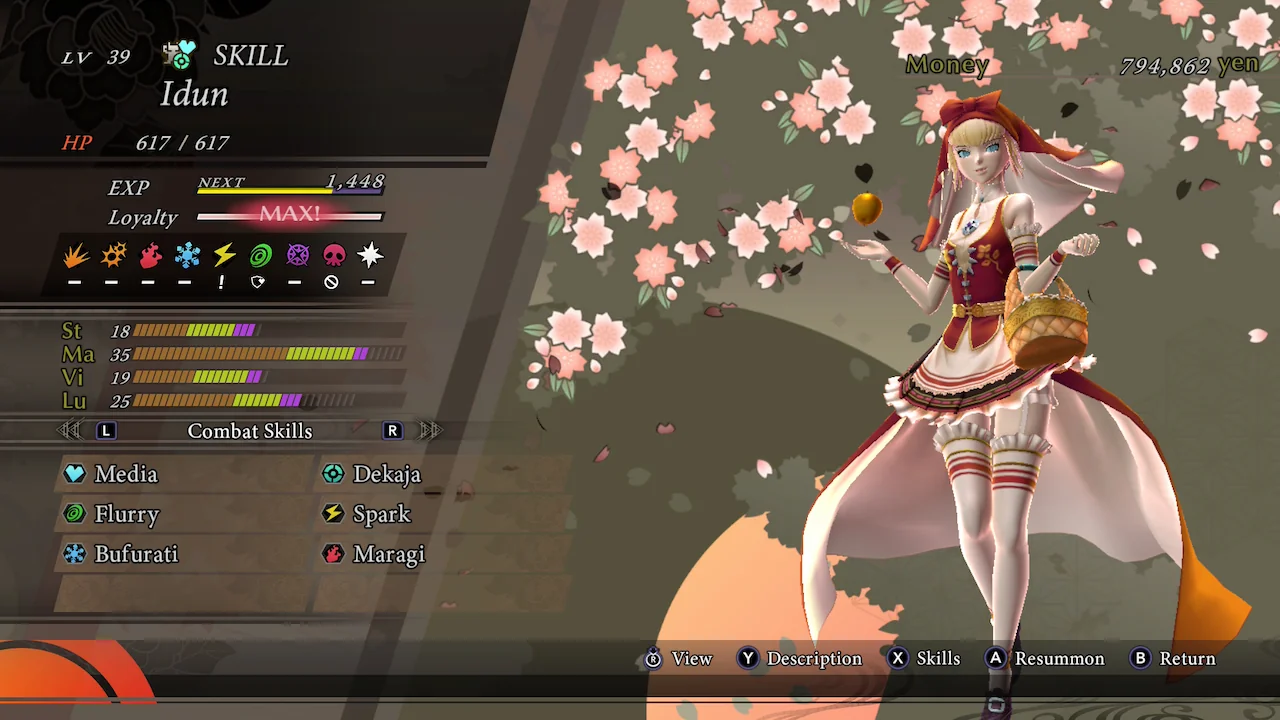
Idun leads a pack of over 50 added demons.
Expanded Roster
Over 50 new demons, including Hayatoro and Idun from SMT V, enrich fusion options.
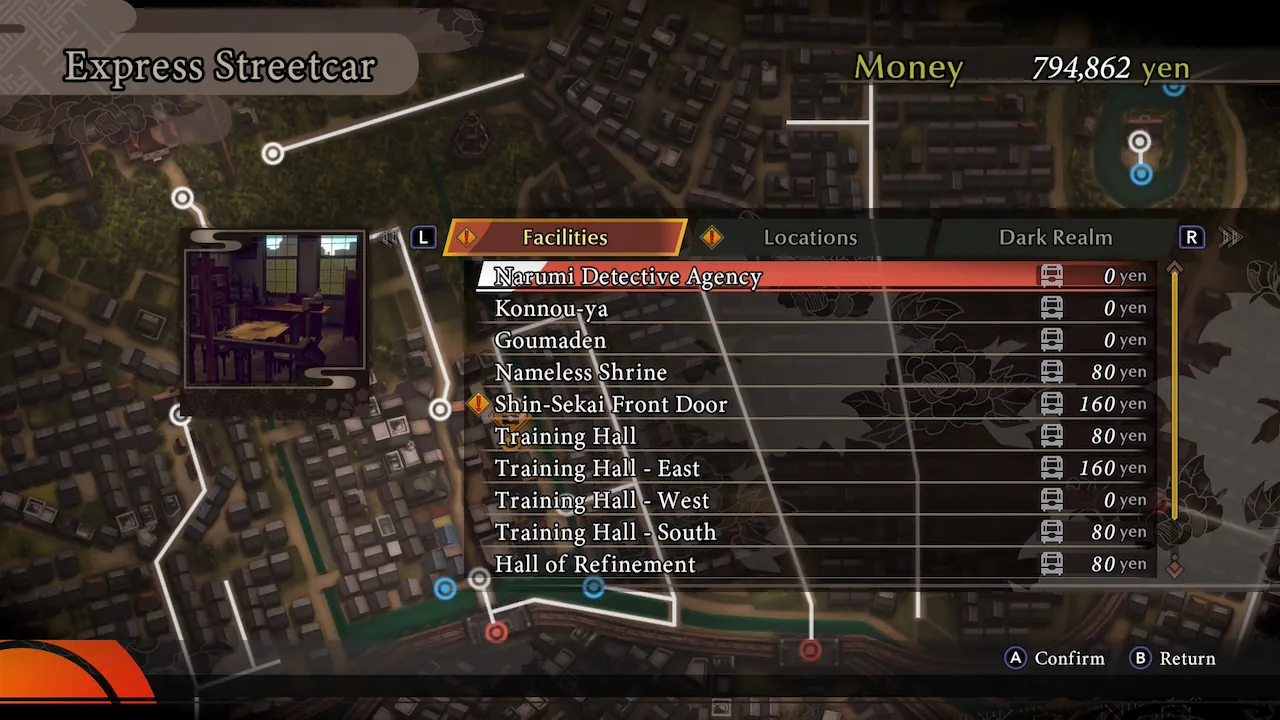
The Express Streetcar makes detective work far more efficient.
Express Streetcar
Fast travel between districts for a small fee, reducing tedious backtracking.
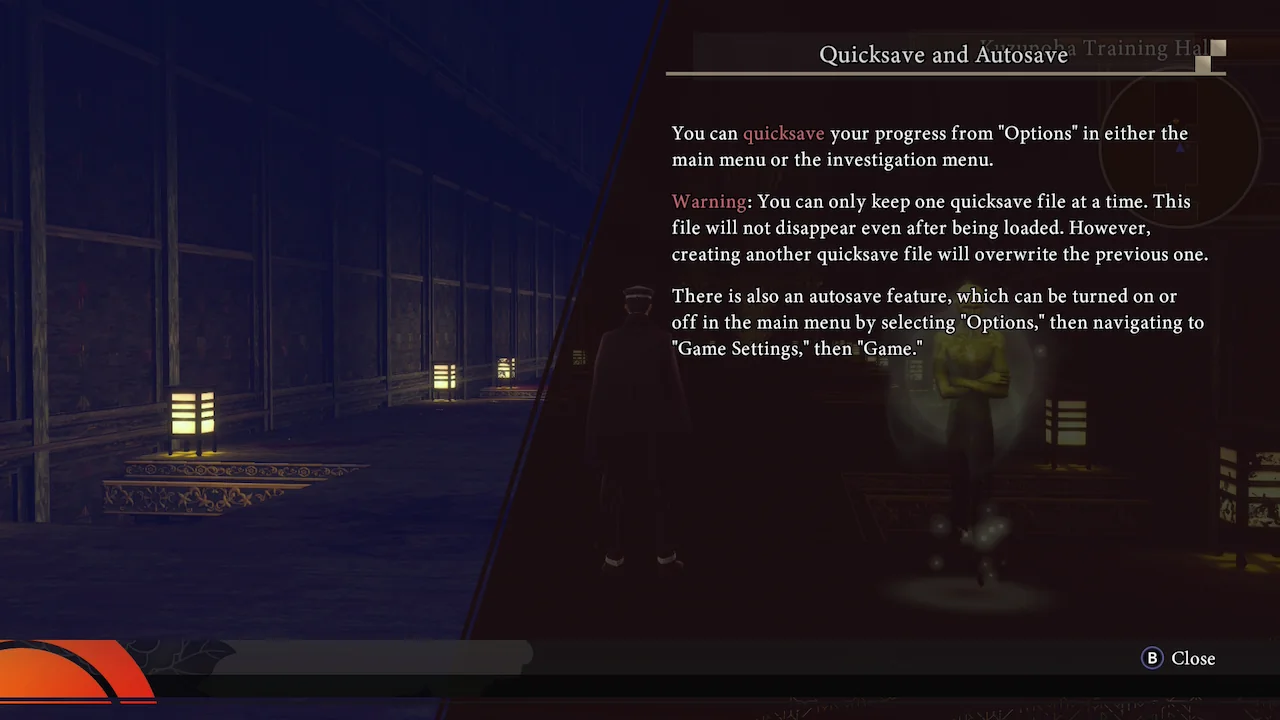
Quicksave and autosave streamline your play.
Saving
Quicksave and autosave let you save anytime outside of battle, fixing the original’s limited save points.
These mechanics deepen the gameplay experience, while the remaster’s voice acting brings the detective-noir narrative to life.
Seiyuu Performances
Full voice acting is included but can be toggled off for purists seeking a classic experience. The cast is strong, featuring Joji Nakata and Tomokazu Sugita reprising their roles as Gotou and Raidou, respectively.
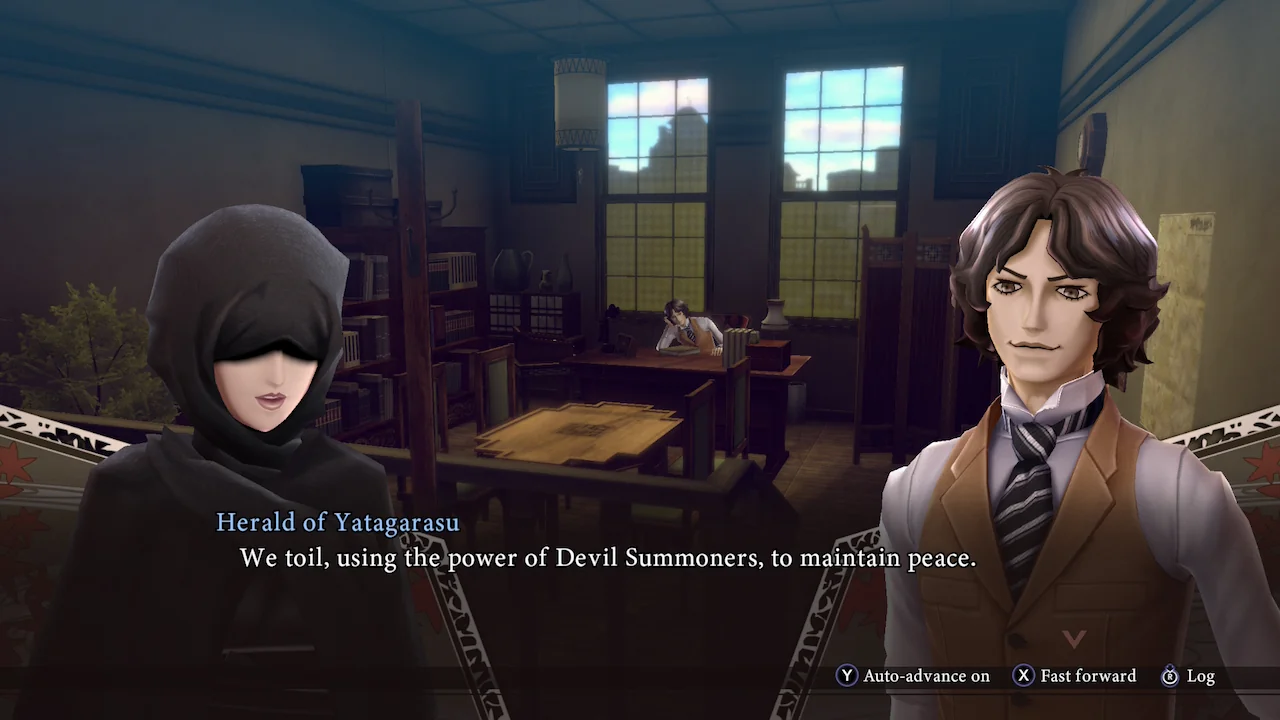
New performances add gravitas to the Devil Summoner’s cause.
- Tomokazu Sugita (Raidou): Gintoki (Gintama), Joseph Joestar (JoJo’s)
- Joji Nakata (Gotou): Alucard (Hellsing), Sol Badguy (Guilty Gear)
- Sayaka Ohara (Herald of Yatagrasu): Erza Scarlet (Fairy Tail), Beatrice (Umineko)
- Shizuka Ito (Owner of Ryugu): Akeno Himejima (High School DxD), Sailor Venus (Sailor Moon Crystal)
- Rika Morinaga (Tae Asakura): Rita Mordio (Tales of), Fernandia Malvezzi (Strike Witches)
- Takehito Koyasu (Narumi): Dio Brando (JoJo’s), Shinsuke Takasugi (Gintama)
RAIDOU Remastered Verdict
Combat excels thanks to responsive controls, evasive rolls, and bullet-hell-style boss fights that demand awareness and precision. Summoning two demons adds meaningful tactical depth; combinations like Arahabaki and Parvati allow players to tank, heal, and deal damage fluidly. The removal of random encounters improves pacing, while Quicksave and the Express Streetcar system eliminate much of the friction that held the original release back.
I completed the game in 18 hours on Private Eye (Normal), moving quickly due to familiarity with the original. Newcomers should expect closer to 27 hours based on HowLongToBeat averages, with New Game Plus exclusives such as Beelzebub and a large selection of Case Files pushing completionist playthroughs beyond 40 hours. Private Eye mode offers a balanced challenge that remains approachable while still demanding careful positioning and timing in later encounters.
Despite these mechanical improvements, the remaster is less consistent when preserving the original’s thematic impact. Several demon designs have been revised, with elements of their more provocative or grotesque presentation softened. In addition, certain historical references tied to the game’s 1930s setting have been removed or recontextualized, subtly altering the narrative texture that once grounded Raidou’s supernatural noir atmosphere.
One notable story encounter has also been reframed, shifting away from explicit historical and occult associations toward a more abstract presentation. While this does not undermine the core plot, it reduces some of the specificity and tension that distinguished the original experience.
In this respect, Raidou Remastered mirrors some of the tonal compromises seen in later Atlus releases, where broader accessibility occasionally comes at the expense of niche identity. The result is a smoother and more approachable experience for new players, though longtime fans may notice the loss of some of the original’s sharper edges.
Even so, the gameplay improvements, refined presentation, and Shoji Meguro’s jazz-infused soundtrack ensure that Raidou Remastered remains a compelling return for the Devil Summoner subseries. It stands as one of Atlus’ stronger remasters in recent years, delivering a polished and enjoyable experience, even if it stops short of fully preserving the distinctive character that defined the original release.
RAIDOU Remastered TLDR
RAIDOU Remastered: The Mystery of the Soulless Army (Switch 2)
7.5
Above Average
Summary: Raidou Remastered revitalizes a cult classic with smoother combat and thoughtful quality-of-life improvements. However, revisions to visual design and narrative presentation soften some of the historical and occult elements that defined the original’s identity.
It remains a strong and enjoyable revival, though one shaped more by modernization than strict preservation.
References
- Raidou Remastered – Nintendo Direct Trailer
- Konnou-Ya – Shoji Meguro
- The Soulless Army – Shoji Meguro
- Hyperspace (Inspired by Algon) – Toshiko Tasaki

